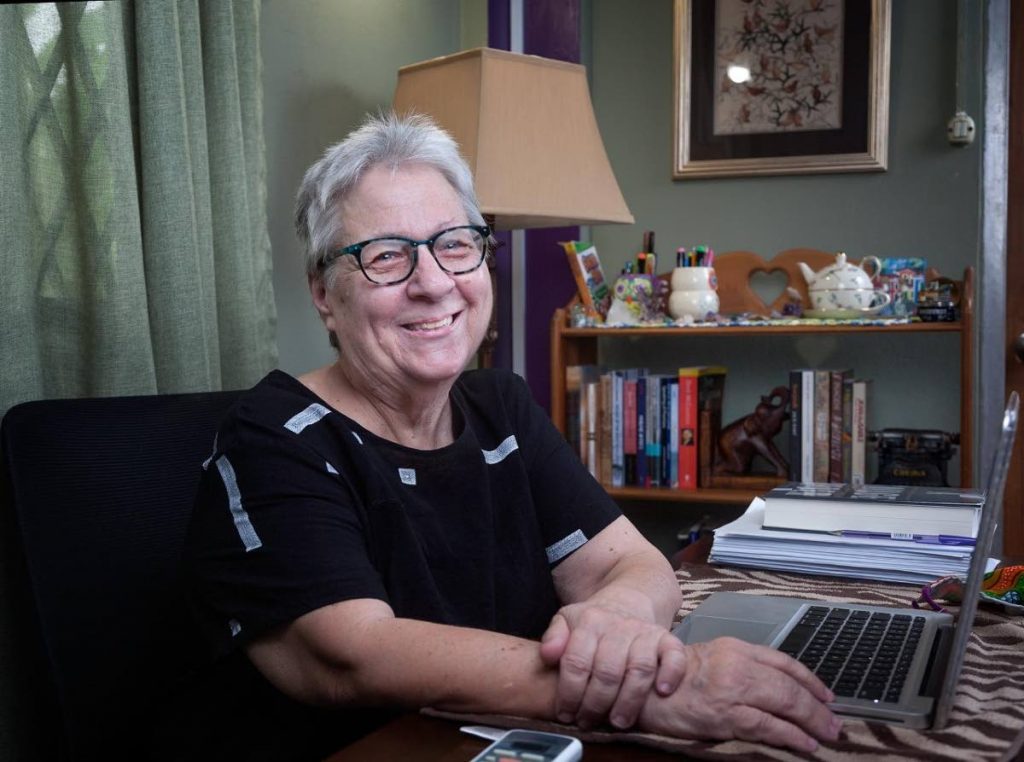A memoir that delivers

THERE ARE rare occasions when a book grabs me from the title page – not for the title itself, but from the author’s byline. There’s something quite mysterious and intriguing about a book written “by” someone and “with” someone, as is the case with Lost Stitches: The Bostitch Legacy and My Crazy Jamaican Family – a Retrospective by Daniel Archer Melville with Rachel Manley.
Before diving into this memoir of an heir to the Bostitch empire, the reader must wonder about Manley’s contribution to the book. Her own books, Drumblair, Slipstream and Horses in Her Hair, prove that she is a master of biography and memoir. Readers can only imagine how Melville’s story benefitted from this collaboration.
Using ship manifests, birth and death records and interviews, Melville’s personal story orbits that of the Bostitch stapler, originally used to bind books. In 1896, the inventor, Thomas Briggs, became hugely successful with his invention in Arlington, Massachusetts. The stapler evolved into many different uses and by 1914 had become a portable stapling machine, a prototype of the desk staplers we now know.
Melville’s own story begins in Arlington in 2018 when he visits the house built in 1889 by Thomas Arnold Briggs, whom Melville describes as an “inventor, industrialist and multimillionaire founder of Bostitch and the author’s great grandfather.”
Melville knows his privileged life in Jamaica leads back to Massachusetts, and his story is the bridge between family members from both countries. The story of the stapler is interesting and relatively straightforward. Melville’s relatives’ lives are more complex and often leave much to the imagination.
One relative went to Florida in 1893 to work in the citrus business and when citrus failed, he journeyed to Jamaica to work with the United Fruit Company. Berenice, the privileged youngest daughter of Briggs, married a Jamaican, Harold Melville, and moved to colonial Jamaica in 1912.
“I wondered why Berenice Briggs would opt for this relative obscurity and uncertainty, leaving the ease, respectability and protection that her father’s achievements would have ensured,” writes Melville.
Stitching together the pieces of a life filled with upper-class privilege and juxtaposing that with the simple, tranquil nature of the countryside, Melville creates a compelling story that explores that sense of belonging we all strive for in life. He confronts colour and privilege in a story with deep-rooted themes of family, love, entrepreneurship and identity.
The Bostitch Legacy is an important literary portrait of colonialism and creolisation. Relatives prone to dreams and “fairy stories” are described as “vain, selfish and narcissistic.” They enjoy gardening, polo and living on their land. They are adventurous and flawed – just like characters in a novel.
Everywhere Melville turns he is reminded of his family’s famous invention. Readers recognise a world filled with racism and social injustice; colonialism and neo-colonialism. It is a story of the past, which is very much a part of the present.
Through it all, a rebellious Melville searches relentlessly for his own personal identity.
“Maybe it was my exposure to the rank and file of Jamaica to their culture and ganja and music, their poverty and politics, but I could never imagine myself anywhere else,” says Melville. “My roots were unconscious and deep. I had a privileged background, but every inch of my psyche and personality was Jamaican,” Melville writes.
His story is one of invention and reinvention – personally and industrial-wise – for just about all of his relatives. It is a moving testimony to the satisfaction of genealogical research, which has become quite a fad these days.
Some of the anecdotes show how money can be a curse; others show how it provides opportunity. All of the stories show how having immense wealth shaped Melville and his relatives’ lives.
The Bostitch story is filled with adventurers, dreamers, smartmen, deceivers, heroes and villains. Melville tackles difficult subjects like depression and suicide, which he says plagued both sides of his family, and he explores the question of whether many of his relatives were crazy or just eccentric beyond all measure.
Coming on the heels of Another Mother: A Jamaican Woman, the Jewish Boy She Raised and His Quest for Her Secret History by Ross Kenneth Urken, also a memoir of Ian Randle Publishers, it appears to be safe to say that Caribbean memoirs are becoming more light-hearted, thoughtful, structurally innovative and creative. The mark of a good memoir is that it creates a place for readers to see themselves and question their own personal history. The Bostitch Story certainly delivers that experience. Check out Paper Based and local bookstores for Melville's memoir.


Comments
"A memoir that delivers"